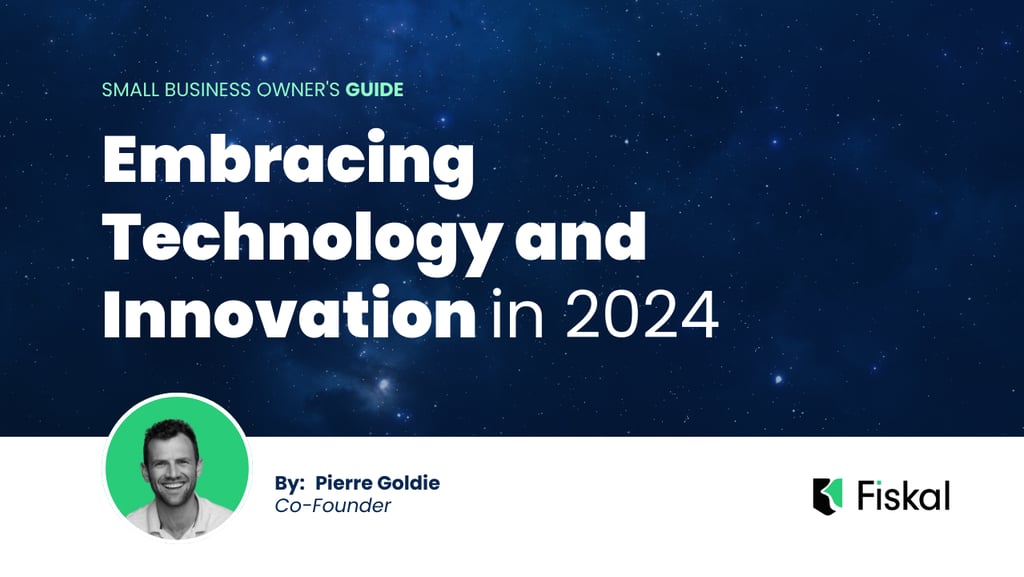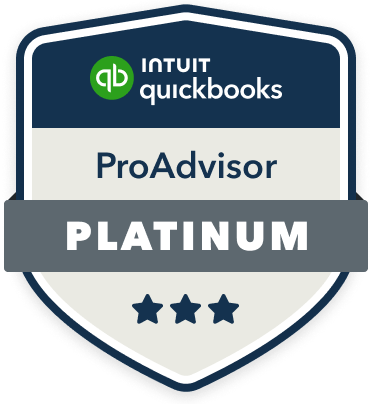The Future of Management Accounting: Embracing Technology and Innovation in 2024
In 2024, the landscape of management accounting is set to undergo a transformative shift. As technology continues to advance at an unprecedented pace, businesses are increasingly recognizing the importance of embracing innovation to stay competitive. The future of management accounting lies in harnessing the power of technology and leveraging it to make data-driven decisions that drive growth and maximize efficiency.
SYSTEMS AND SOFTWARE


With the rise of artificial intelligence, machine learning, and automation, traditional manual processes in management accounting are being replaced with automated systems that can perform complex calculations and generate real-time insights. This not only eliminates the risk of human error but also frees up valuable time for accountants to focus on more strategic and value-added tasks.
Furthermore, technology enables enhanced data analysis and visualization, providing management accountants with actionable insights that can inform critical business decisions. From predictive analytics to scenario planning, technology empowers management accountants to make accurate forecasts and optimize resource allocation.
As we move forward in 2024, management accountants must embrace this digital revolution and upskill themselves to leverage technology effectively. Those who fail to adapt risk being left behind, while those who embrace technology and innovation will thrive in the evolving world of management accounting.
The role of technology in management accounting
Technology has become an indispensable tool in the field of management accounting. Gone are the days when accountants had to rely solely on manual processes and spreadsheets. Today, management accountants have access to advanced software and tools that not only streamline their workflows but also enhance the accuracy and reliability of their financial data.
One of the key roles of technology in management accounting is automation. Automating repetitive and time-consuming tasks such as data entry and reconciliation not only saves time but also reduces the risk of errors. This allows management accountants to focus their efforts on more strategic activities, such as analyzing financial data and providing valuable insights to decision-makers.
In addition to automation, technology also enables real-time data analysis and reporting. With the help of advanced analytics software, management accountants can generate meaningful reports and dashboards that provide a comprehensive view of the company's financial performance. This allows them to identify trends, anomalies, and opportunities for improvement in a timely manner, enabling faster and more informed decision-making.
Furthermore, technology facilitates collaboration and communication within the organization. Cloud-based accounting systems enable real-time access to financial data, allowing different teams and departments to work together seamlessly. This not only improves efficiency but also promotes cross-functional collaboration and alignment, leading to better overall financial performance.
Benefits of embracing technology and innovation in management accounting
The benefits of embracing technology and innovation in management accounting are far-reaching. By leveraging technology effectively, organizations can achieve greater efficiency, accuracy, and agility in their financial processes. Here are some key benefits of embracing technology and innovation in management accounting:
1. Improved Efficiency: Automation of manual tasks reduces the time and effort required to complete them, allowing management accountants to focus on more strategic activities. This leads to improved overall efficiency and productivity within the finance function.
2. Enhanced Accuracy: Technology eliminates the risk of human error, ensuring that financial data is recorded and processed accurately. Automated systems perform complex calculations with precision, reducing the likelihood of mistakes and discrepancies.
3. Real-Time Insights: With technology-enabled real-time data analysis, management accountants can access up-to-date information and insights. This allows for faster decision-making and enables proactive financial management.
4. Cost Savings: By automating repetitive tasks and streamlining processes, organizations can reduce costs associated with manual labor and potential errors. Technology also enables better resource allocation, optimizing the use of financial resources.
5. Strategic Decision-Making: Technology provides management accountants with the tools and capabilities to perform advanced analytics and scenario planning. This enables them to make data-driven decisions that drive growth and maximize profitability.
6. Improved Collaboration: Technology facilitates collaboration and communication within the finance function and across different departments. Cloud-based systems enable real-time access to financial data, promoting teamwork and alignment.
Examples of technology and innovation in management accounting
The field of management accounting has witnessed significant technological advancements in recent years. Here are some examples of technology and innovation that are transforming the industry:
1. Artificial Intelligence (AI): AI-powered software can analyze large volumes of financial data and identify patterns and trends. This enables management accountants to gain valuable insights and make accurate predictions.
2. Machine Learning: Machine learning algorithms can learn from historical financial data and predict future outcomes. This helps management accountants in forecasting and planning activities.
3. Robotic Process Automation (RPA): RPA automates repetitive and rule-based tasks, such as data entry and invoice processing. This saves time and reduces the risk of errors, freeing up management accountants for more strategic activities.
4. Cloud Computing: Cloud-based accounting systems provide real-time access to financial data from anywhere, enabling remote work and collaboration. This improves efficiency and flexibility within the finance function.
5. Data Visualization: Advanced data visualization tools allow management accountants to present financial information in a visually appealing and easy-to-understand format. This enhances the communication of financial insights to stakeholders.
Challenges and risks of technology adoption in management accounting
While the benefits of technology adoption in management accounting are significant, there are also challenges and risks that organizations need to consider. It is important to address these challenges proactively to ensure successful implementation and utilization of technology:
1. Cost of Implementation: Implementing new technology and systems can be expensive, especially for small and medium-sized businesses. Organizations need to carefully evaluate the cost-benefit ratio and consider long-term ROI.
2. Data Security and Privacy: With the increasing reliance on technology, data security and privacy become crucial considerations. Organizations need to implement robust cybersecurity measures and ensure compliance with data protection regulations.
3. Resistance to Change: Technology adoption often requires changes in processes and workflows, which can meet resistance from employees. Organizations need to invest in change management initiatives and provide adequate training and support to ensure smooth transition.
4. Lack of Skills and Expertise: The successful adoption of technology in management accounting requires skilled professionals who can leverage the technology effectively. Organizations need to invest in training and upskilling programs to ensure their workforce is equipped with the necessary skills.
5. Integration Challenges: Integrating new technology with existing systems and processes can be complex and time-consuming. Organizations need to carefully plan and manage the integration process to avoid disruptions and maximize benefits.
How to embrace technology and innovation in management accounting
To embrace technology and innovation in management accounting, organizations need to take a strategic and structured approach. Here are some steps to consider:
1. Assess Current Processes: Evaluate existing management accounting processes and identify areas that can be improved through technology adoption. This includes identifying manual and repetitive tasks that can be automated.
2. Set Clear Goals: Define clear goals and objectives for technology adoption in management accounting. This could include improving efficiency, accuracy, or decision-making capabilities.
3. Invest in the Right Technology: Research and select technology solutions that align with the organization's goals and requirements. Consider factors such as scalability, integration capabilities, and ease of use.
4. Plan for Change Management: Develop a change management plan to address employee concerns and resistance. Communicate the benefits of technology adoption and provide training and support to ensure a smooth transition.
5. Monitor and Evaluate: Continuously monitor the impact of technology adoption on management accounting processes and performance. Collect feedback from employees and stakeholders to identify areas for improvement.
6. Invest in Skills Development: Provide ongoing training and upskilling opportunities for management accountants to ensure they have the necessary skills to leverage technology effectively. This could include training on specific software or data analytics techniques.
The future of management accounting in 2024
In 2024, the future of management accounting looks promising. As technology continues to advance, management accountants will have access to even more sophisticated tools and capabilities. Here are some key trends that are likely to shape the future of management accounting:
1. Predictive Analytics: Management accountants will increasingly rely on predictive analytics to forecast future outcomes and identify potential risks and opportunities. This will enable proactive financial management and strategic decision-making.
2. Big Data and Analytics: With the increasing volume and complexity of financial data, management accountants will need to become proficient in handling and analyzing big data. This will require advanced data analytics skills and tools.
3. Blockchain Technology: Blockchain has the potential to revolutionize financial processes by providing a secure and transparent ledger system. Management accountants will need to understand and leverage blockchain technology to ensure data integrity and trust.
4. Artificial Intelligence and Machine Learning: AI and machine learning algorithms will become more sophisticated, enabling management accountants to gain deeper insights and make accurate predictions. This will further enhance the role of management accountants as strategic advisors.
5. Integrated Reporting: Integrated reporting, which combines financial and non-financial information, will become more prevalent. Management accountants will play a key role in providing comprehensive and meaningful reports that reflect the organization's overall performance and impact.
6. Ethics and Governance: With the increasing reliance on technology and automation, ethical considerations and governance frameworks will become even more important. Management accountants will need to ensure compliance and ethical use of technology in financial processes.
Skills required for management accountants in the future
As technology continues to transform the field of management accounting, the skills required for management accountants will also evolve. Here are some key skills that management accountants will need to thrive in the future:
1. Data Analysis and Interpretation: Management accountants will need to be proficient in analyzing and interpreting large volumes of financial data. This includes understanding statistical concepts, data visualization, and data modeling.
2. Technology Proficiency: Management accountants will need to be comfortable with using and leveraging technology solutions such as advanced analytics software, cloud-based systems, and automation tools.
3. Business Acumen: Management accountants will need to have a deep understanding of the business and industry they operate in. This includes knowledge of market trends, competitor analysis, and strategic planning.
4. Communication and Collaboration: Effective communication and collaboration skills will be crucial for management accountants to work cross-functionally and present financial insights to stakeholders in a clear and impactful manner.
5. Ethics and Professionalism: With the increasing use of technology, management accountants will need to uphold high ethical standards and demonstrate professionalism in handling financial data and information.
6. Continuous Learning: The field of management accounting is constantly evolving, and management accountants will need to embrace lifelong learning and stay updated with the latest trends and technologies.
Training and education for management accountants in the digital age
To prepare management accountants for the digital age, organizations and educational institutions need to offer relevant training and education programs. Here are some initiatives that can help develop the necessary skills:
1. Professional Development Programs: Organizations can provide in-house training programs and workshops to enhance the skills of management accountants. This could include training on specific technology solutions or data analytics techniques.
2. Certifications and Designations: Professional certifications such as Certified Management Accountant (CMA) or Chartered Global Management Accountant (CGMA) can validate the skills and expertise of management accountants in the digital age.
3. Collaboration with Educational Institutions: Organizations can collaborate with educational institutions to develop curriculum and courses that address the skills required for management accountants in the digital age. This ensures that graduates are equipped with the necessary skills.
4. Online Learning Platforms: Online learning platforms offer flexible and accessible training opportunities for management accountants. Organizations can provide access to these platforms or recommend specific courses to their employees.
5. Industry Networking and Conferences: Attending industry networking events and conferences allows management accountants to stay updated with the latest trends and technologies. This provides opportunities for learning and professional development.
Conclusion: Embracing the future of management accounting
The future of management accounting lies in embracing technology and innovation. As we move forward in 2024, management accountants have the opportunity to leverage technology to enhance their roles as strategic advisors and decision-makers. By embracing automation, advanced analytics, and collaborative tools, organizations can achieve greater efficiency, accuracy, and agility in their financial processes. However, it is crucial to address the challenges and risks associated with technology adoption and invest in the necessary skills development. By doing so, organizations can position themselves for success in the evolving world of management accounting. Embracing the future of management accounting is not just a choice; it is a necessity for survival and growth in the digital age.
At Fiskal we try to stay on top of new systems, technologies and upgrades happening in and around our industry and our clients.
Book a free consultation with one off our experts to discuss what we offer in this ever changing environment.












